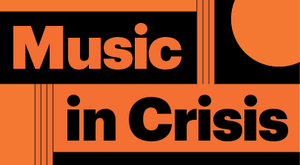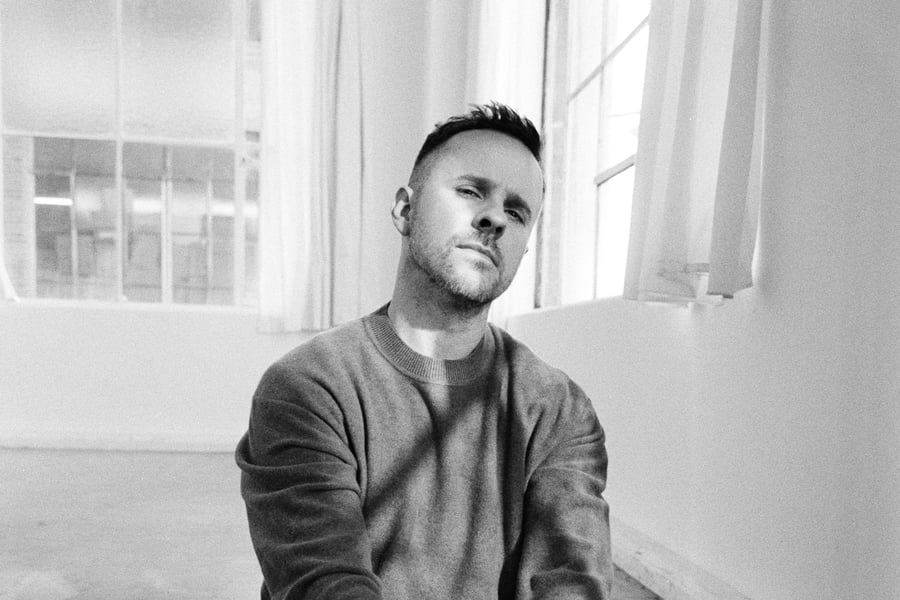This is the sixth installment of Rolling Stone‘s Music in Crisis series, which looks at how people all across the music industry are coping with the coronavirus pandemic.
 On March 15, as several states were getting close to ordering residents to shelter in place, the writer-producer Ricky Reed (Lizzo, Halsey, Kesha) published an open letter addressed to the songwriting community. “Stop doing the things you really don’t want to stop doing,” he wrote. “No sessions. No meetings. No shows. No going to packed bars. No eating at restaurants. No brunch.” “Be an introvert,” he concluded, to “save the world.”
On March 15, as several states were getting close to ordering residents to shelter in place, the writer-producer Ricky Reed (Lizzo, Halsey, Kesha) published an open letter addressed to the songwriting community. “Stop doing the things you really don’t want to stop doing,” he wrote. “No sessions. No meetings. No shows. No going to packed bars. No eating at restaurants. No brunch.” “Be an introvert,” he concluded, to “save the world.”
But no sessions doesn’t mean no songwriting. Around the music industry, writers have started trying to craft songs together over Zoom and FaceTime. Reed goes one step further by live-streaming some of these sessions. “This began as a mental health exercise for me to keep from going crazy,” Reed tells Rolling Stone. “How can we really spread inspiration and challenge our community to shake off this freeze, when anxiety puts you in that freeze state?”
The series, which initially aired once a week but is now moving to a Monday and Thursday schedule, includes multiple parts: Reed takes questions from his audience, gently critiques demo tracks from strangers, then listens to three “starter beats” provided by other professional musicians before choosing one to turn into a fully realized track. He solicits vocal ideas from pals like Teddy Geiger, who has helped write several of Shawn Mendes’ hits, and weaves those into the production in real time. Reed is genial and charismatic as he tinkers with drum machine sounds, adjusts tempos, and drinks red wine from an overlarge mug; the videos offer a remarkable window into modern music-making.
“This resonates with people in the writing community, particularly writers who are feeling isolated, and people who are outside of that community as well,” says Jenna Rubenstein, songwriter relations lead for YouTube, which is helping Reed with his series. “It can mimic the flow of a traditional session.”
Reed spoke with Rolling Stone about the inspiration behind the series and the challenges of collaborating remotely.
When this all started, I was texting with friends of mine. A lot of us were still trying to wrap our heads around this thing. And some of my writer friends were like, “I’m out here working on artist-who-will-remain-nameless’ album, or a new single for so-and-so.” But I’m from the Bay Area, and my friends there were starting to shelter in place.
On the one hand, there’s that side of me that’s like, let’s chill for a second. Then there’s that other nagging thing inside of me: What’s gonna happen to my job? The food chain of the music industry, with the live music business coming to a halt — artists release music based on when they can go on tour. All of a sudden it starts to hit me. Am I irrelevant? Is new music irrelevant? For my own mental health, I need to be creating.
If you one day discovered a new muscle in your body and you have to start using it, it takes time to wrap your head around how the thing works. The first remote session I tried to do wasn’t even a session. It was 45 minutes to get everyone signed in. Then 20 minutes of technical difficulties. One person has one eye on Netflix. The other person’s laying in bed. That doesn’t feel good for anybody. It sounds bad, feels bad, there are no results. It’s very easy, very understandable, to be like, this isn’t gonna work for us.
But we stuck to it. We put together a second session. There’s a lag. You’re talking over somebody by accident. Someone’s got their speakers turned up too loud, and there’s an echo. The second day is a little better, but still clunky. Once you’re five, six, seven sessions in, and you get a little bit of a flow going, you can actually make good music. I’ve now been part of sessions where, if anything, we’ve gotten things that are more emotionally rich than regular sessions. Everyone who is doing sessions right now is really trying. If you’re slugging it out, you’re fighting your way through this, it means you really have something to say. Because the shit ain’t fun.
With a few cables and adapters I scraped together at my house, I put together my first set-up to live-stream audio for songwriting sessions. When I feel motivated creatively, work on an idea for two or three hours, it’s the one thing that can really take me out of that anxious state. Our goal was, what can we do that will actually inspire some type of community and creativity?
Part of the reason this was a good outlet for me also is it’s kind of like learning a new instrument. I had to learn a bunch of new software platforms, try to understand the way the cameras work, get a little lighting set-up. If you start on episode one, I’m in my kitchen and the Pro Tools audio is crashing every five seconds. I’m like holding my headphones up to the mic to show people what I’m doing because the audio isn’t coming through. With every episode there is a slight upgrade in the quality, a few less technical difficulties. When I added a second camera, I was very proud of that. I felt like I was in a damn ESPN production studio. The first time I switched over to camera two I was really feeling myself.
Even before the new quarantine normal, in sessions with artists and songwriters you have to set a tone. It’s like you’re inviting someone into your home, regardless of if you’re at some dark, impersonal studio space. You have to let the artist and everyone there feel welcome, check in on their needs, check in on an emotional level. Not being too armchair therapist, but try to meet them where they’re at. Then you have to keep the energy up and going and ride it out until you get to something you love. That’s the same formula that I’m bringing to the streaming sessions. That’s my job.
We ask for demos out in the world. The most exciting thing is when I’m doing what we call “the thoughtful roast.” We’re listening to music and whoever sent the demo in is in the chat [accompanying the live-stream]. And whoever else is in the chat starts saying, “dude, this is great. Do you need drums for this? I could produce this for you.” I see people start to share their contact information in the chat in real time. I saw one person in the chat asking the artist behind the demo, “do you have a manager? Send me a message, I have an idea of somebody you should meet.” That’s my dream. You can’t go to bars. You can’t go to parties. You can’t go to shows. We’re missing out on community in such a fundamental way. Even though the show is in its very humble beginnings, to see a handful of people collaborating, making friends, cheering each other on, that’s the reason I’m doing this.
Right now we’re just uploading the demos [when we finish them] as kind of an open source situation and encouraging people to put vocals on them, remix them. Record producers are so secretive. We use scarcity as part of our business model. You’re not gonna see my tricks. You’re not gonna hear my music until you’re hearing a superstar mixed and mastered on top of it. Our first idea with this was, what if we just showed our process to the people?
Making music in this sort of open-source way might be a way to make music start to feel urgent again, relevant again. For me, all I can listen to is music from my childhood. I can listen to that, instrumental, ambient music, jazz. I can’t really bear taking in new music or new releases. My heart doesn’t have space for it. I’m hoping that by creating in this way, through this platform, that maybe we would be lucky enough to put some charge on the stuff that’s being made right now.






































